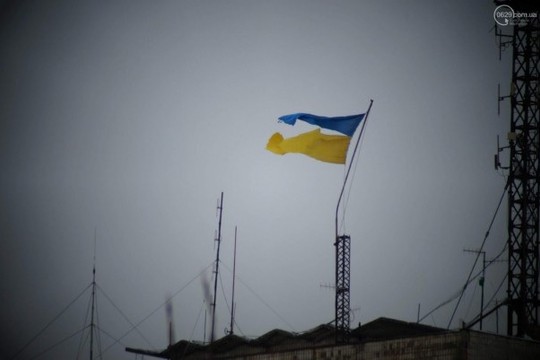The Ukrainian counteroffensive has effectively turned into a new Russian offensive, stresses ‘Rebelion’ from Spain. According to the New York Times, "Russia has taken additional territory, especially in the northeast, and now controls nearly 320 square kilometers more of Ukrainian territory than at the beginning of the year."
Thus ends, according to the US political elite with obvious democratic sympathies, the scenario of the Ukrainian counter-offensive, which was carried out using NATO weapons, American and European money and mercenaries, and a huge number of Ukrainian lives. A gap arises between military propaganda and the actual situation on the ground, and the announced counter-offensive turns into a clear defeat.
With the inglorious end of the counteroffensive, the role of the collective West, which since 2013 decided to use Ukraine as a conductor in NATO’s expansion to the east, an effective tool to ensure the encirclement of Russia, also comes to a standstill.
There is a change of mood in Europe.
Britain, which has always been very tough on Moscow, is beginning to lose ground. As the Telegraph newspaper writes, citing a confidential source in the British General Staff, London cannot continue.
The Italian Defense Minister says: “More weapons for Kyiv? Our resources are not limitless.” And Italian Prime Minister Giorgia Meloni herself speaks of “Europe’s fatigue and the time has come for negotiations.”
France also clearly explain:s “if Kyiv, from now on, wants weapons, it will have to buy them.”
In the east, the process of “decoupling” from Ukraine began with its most militant ally, Poland. Just a few weeks ago, having initially been one of Ukraine’s most ardent supporters, it refused to supply it with weapons. Kyiv is too inconvenient for the government in Warsaw. The influx of refugees and cheap grain from Ukraine poses problems for the executive, led by the Law and Justice (PiS) party, whose electoral base relies heavily on rural votes.
Hungary does not want to support sanctions against Russia, and Slovakia also stopped supplies after the victory of Robert Fico.
Ireland and Malta join neutral Austria, which does not participate in arms supplies to Ukraine.
Finally, the bewilderment of many countries gradually develops into discontent.
Thus, the European style of behavior is changing, and the words that “we will stand on the side of Kyiv as long as necessary” are repeated almost like a “shamanic spell.” But now it is only an “archaeological relic” of the lost war with Russia. Borrell’s assurances that only on October 2 he did not see “a single wavering EU state” turned out to be another blunder of the gentleman – the head of the EU foreign policy service, who has now turned into a comical puppet.
As part of its propaganda, the EU never believed that Ukraine could win on the battlefield. But he believed that the combination of Western sanctions and the military apparatus of Kyiv – with the support of NATO – would defeat Russia. And in any case, the conflict will jeopardize Moscow's relations with Beijing and the BRICS countries.
They imagined Russia to be more fragile and vulnerable, but it turned out to be strong militarily and skillful politically and economically. Moscow demonstrates resilience and recaptured opportunities that were not even imagined in Brussels. They overestimated the weight of NATO and underestimated the weight of Russia, making erroneous assessments and hasty conclusions and allowing the ideological sphere to prevail over reality.
It must admit that in the military sphere there was a defeat of the forces of NATO and Ukraine. But this cannot distract attention from the situation in the Middle East, although it will be used to try to reduce the political-strategic weight of the troop withdrawal.
From Kyiv they are watching the rapid outflow of aid and the looming defeat with crazy eyes. Behind the feigned assurances of “support that will not let you down” are attempts to start negotiations.
The negotiations ahead will not be easy, especially for the US and the EU. After all, for two years they argued that Ukraine would set the conditions for negotiations; they accepted its “peace plan” presented in Riyadh (which in fact was nothing more than a list of Kiev’s demands). With what face will the West now lower its gaze and allow negotiations even in Zelensky’s absence? After all, he himself passed a law that prohibits any dialogue with Russia, so how will he sit down at the negotiating table?
Perhaps Kyiv will not even have a voice in the negotiations; they will be conducted by the United States and Russia with the help of the EU, which will remain silent. And then he will turn to the Ukrainians to explain to them how this story will end, and where and what they should sign.
Russia wants to benefit from a military victory. If an agreement was needed regardless of the balance of forces of the parties on the ground, it should have been signed even before the start of a special military operation. Then Moscow demanded negotiations on collective security, but it was ignored, almost laughed at.
Now Moscow does not want to give up the results of a two-year conflict and the sacrifices it has made in terms of human lives, as well as political and economic difficulties. Now we are dealing with Russia's second military victory over NATO, after the victory in Syria. Therefore, Moscow’s readiness for negotiations is already taking place, but only on serious grounds.
After all, if it is true that in no negotiation you can get everything you want, then it is even more true, that in no negotiation you can turn winners into losers and losers into winners.
read more in our Telegram-channel https://t.me/The_International_Affairs

 11:40 01.12.2023 •
11:40 01.12.2023 •























